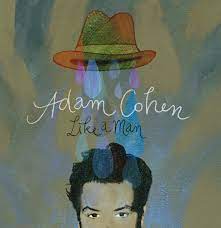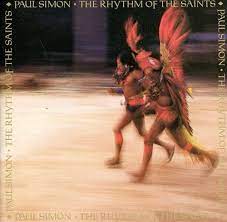You know the Paul Simon song “The Afterlife”? It’s the one where the singer imagines he has died, and even just to enter Heaven, in his words:
You got to fill out a form first
And then you wait in the line
Well, let me tell you, I know for certain now that Paul Simon never had to deal with the California Department of Motor Vehicles. I am not so lucky. Today, I had to go to the DMV to correct an error they had made on my driver’s license renewal some three or four weeks ago, and I hadn’t seen until the new license arrived in the mail two days ago.
I would have done anything to avoid going in, and judging from their website, that would have been their preference too. I might have been able to correct an error in my name or address, but they had gratuitously issued my new driver’s license with the restriction that I must wear corrective lenses.
Where had that come from? >dramatic shrug< Who knows? I had come in with a DMV form 926 properly completed by my optometrist stating that my vision is within acceptable parameters. The DMV had accepted the form as correct and waived the eye exam.
But when the brand new license came in the mail, behold! Corrective lenses required. And there was no recourse but to go in to have it corrected. I made an appointment for 9:10 a.m. in order to avoid, well, waiting in line. But of course there was a line for people who had made appointments in order to avoid waiting in line, and so . . . I waited in it.
When my turn finally came, I was told that I would have to complete a new application in order to make the correction, and for that — yes, you guessed it — there was another line I needed to wait in.
When my turn came around, the friendly staff member told me I had to — yes, you guessed it — fill out a form first. This, I was able to do at a computer electronically and was issued some sort of verification number I would need when I — yes, you guessed it again — went back to wait in line again.
The staffer reviewed the form and told me there would be a charge to issue the corrected license. Name and address corrections were free, but this . . .
I objected. It wasn’t my fault! I had done everything right! It was entirely a DMV error!
Luckily, the staffer was kind, and she had the authority to waive the charge. I just had to take my machine-issued control number and . . . wait in another line.
At the other line, I was issued a different number and told to . . . wait in the line. This time, luckily, I could just sit and wait for my number to be called. Time passed. I caught up on today’s news and on my emails. More time passed. I did a few of the puzzles from the New York Times. Finally, my number was called, and I was sent to — you knew this was coming, didn’t you? — wait in the first, no, the second line again.
This time, the staffer informed me that I would be issued a new (hopefully correct) license, and for this I would need a new photo. And for this — you saw this coming, didn’t you? — I had to wait in another line.
While waiting, I over heard the following at the next window over:
Customer: [requests the service he’d been waiting for]
Staffer: “We don’t do that here. You have to go outside to the kiosk and wait in line over there.”
I am not making this up.
Photo taken, I was told to — no joke, this really happened — go back and wait in line again at the other window, where I had to carefully review a form that did not indicate whether or not I needed corrective lenses, while the staffer printed out several forms for the DMV’s records. After receiving my approval, she also printed out some forms for me: a temporary driver’s license, and a $0 receipt for the charge that I did not pay.
By my calculations, I waited in line seven times, and participated in the generation of at least four forms, two control numbers of some kind, and one photograph. The visit took two hours, but at least I wasn’t charged for it. And I was free to go.
Paul Simon, you ain’t seen nuthin’!


